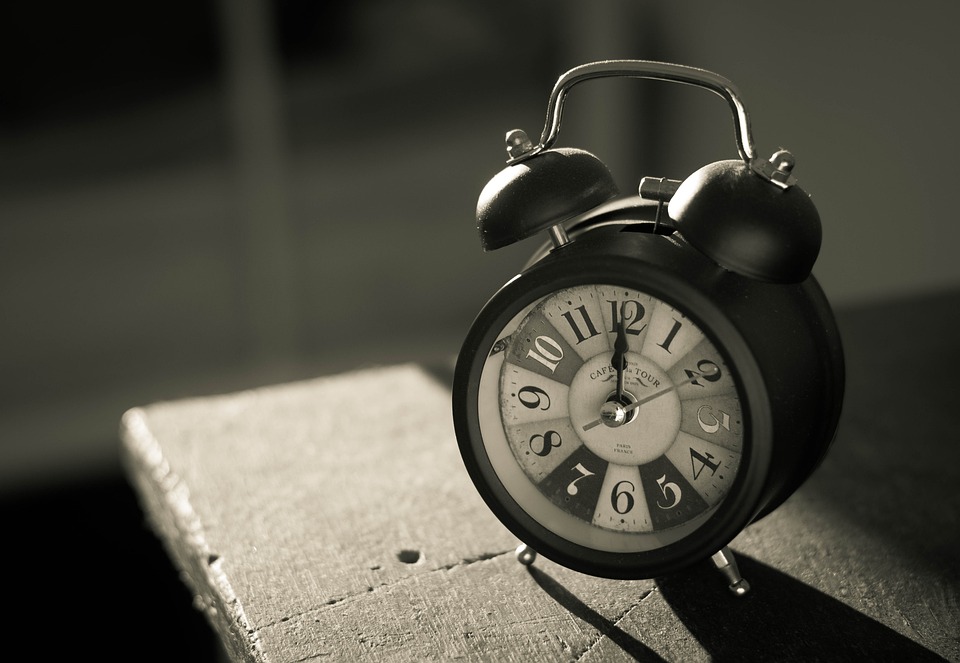Time, it flies, it is money, is of the essence, and so on. Such a basic part of the world that it is almost un-definable can anyone even try to understand it? Aristotle enumerates it as part of quantity in his ten categories in Categories as a continuous whole not unlike space, but a paradox seems to arise from the baseness of time to nature and language in the second part of his division of quantity.
Nor could this be done in the case of time, for none of the parts of time has an abiding existence, and that which does not abide can hardly have position. It would be better to say that such parts had a relative order, in virtue of one being prior to another.
Time having no “abiding existence” in each of its parts would suggest that there is only the moment, that only the moment exists. Maybe it’s just semantics, but if only one moment exists and there is no “abiding” of moments then would not the past not exist. Of course the past does not exist in the sense that it is not present to us as is the one moment we call the present, but: would this not mean that the past is unreal?
It would seem so, as one would agree with Aristotle in common parlance, but there must be some sort of existence to the past in talk of God’s being outside of time. But this opposing idea has a weird conclusion as well, if the past is real, then yourself five years ago is real in some way to the present moment, World War II is just as real as is anything that happens today and is on equal footing to it.
But herein is the contradiction from relating Aristotle’s definition to common thought. Assuming it is not a semantic difference as that between the words is and was, time is at the same time only a sequence of frozen current mental perceptions of events (present moments) as by this apparently quantized understanding of Aristotle and also in popular thinking a continuum of flow whereby experience is more than a frozen “still-shot” but a moving action, a bridging of moments. At least this is how we experience time, we experience and see movement, the bridging from one view to another as we perceive motion is viewed as motion not as quantized jumps as would be again if “none of the parts of time has an abiding existence”. While of course we could be simply ignorant of the quanta of time if these parts of no abiding existence are miniscule compared to our second-to-second experience of “time” this shows that consciousness and life have a certain power over time, whatever it is. Perhaps this is a way to bridge this definition of Aristotle (he apparently argues the opposite elsewhere) against common experience. Time could be instantaneous frozen quanta but it is unified or bridged in certain ways into a flow.
For one, there is a basic bridging power as we see objects perpetuate beyond an instant. There are no instantaneous squares in perception to make an example, everything perpetuates or exists between different instaneousities of time. We say then that a tree is old, because its matter, or perhaps basic physical form perpetuates across a large number of time” or instantaneous intervals. But there is higher power in perceiving this, although we sometimes see it as a curse, being able to see the “flow” of time is actually a power over it as we have more than the present moment when we can hold virtually within our mind at one moment many such different moments. This doesn’t answer the earlier question, however, of the past’s existence properly, but perhaps this is because such a question is in the realm of a third power, the “God-view” of time.
This would be a unifying whole, somewhat like our unifying ability of differing moments, but to God seeing all perfectly and fully, where time is quite different than any of our perceptions. To us then I think the answer is in between, the past to us is the past as we hold it in another moment, recollecting it in memory, unreal because it is shut off from us, but real in that it happened while to God, outside of time, it is truly real, whereby the moment of “current” perception to God is all of history. Thus time is an artifact of the world and our perception of it - I think (using a verb which also has connotations of present - time) but there are true avenues for thought in thinking about the powers over time.
Man wants to have more power over time, to control the flow of it, as we can reduce quite a bit if not most of literary plots to some concern involving death which is itself a concern over time - herein, carefully, I muse it, is another understanding of the Original Sin, Adam and Eve wanting to control time, as a way of them trying to take God’s place and His power. That is what Original Sin was, a form of self-idolatry, and this “new understanding” of involving time in the idea of the sin is quite fittingly ironic whereby in trying to control time, to have power of life-and-death (the idea of what is good and evil ultimately goes down to power over others over their lives - extensions in time - at least as we/Adam/Eve think/thought) - and their attempt ended in man being enslaved to time, perhaps even viewed as Adam/Eve worshipping time, a time of themselves that they could control outside of God?
Well then, is time bad?
Do we even know what it is?
No … to continue at another mental experience moment

Comments
Post a Comment